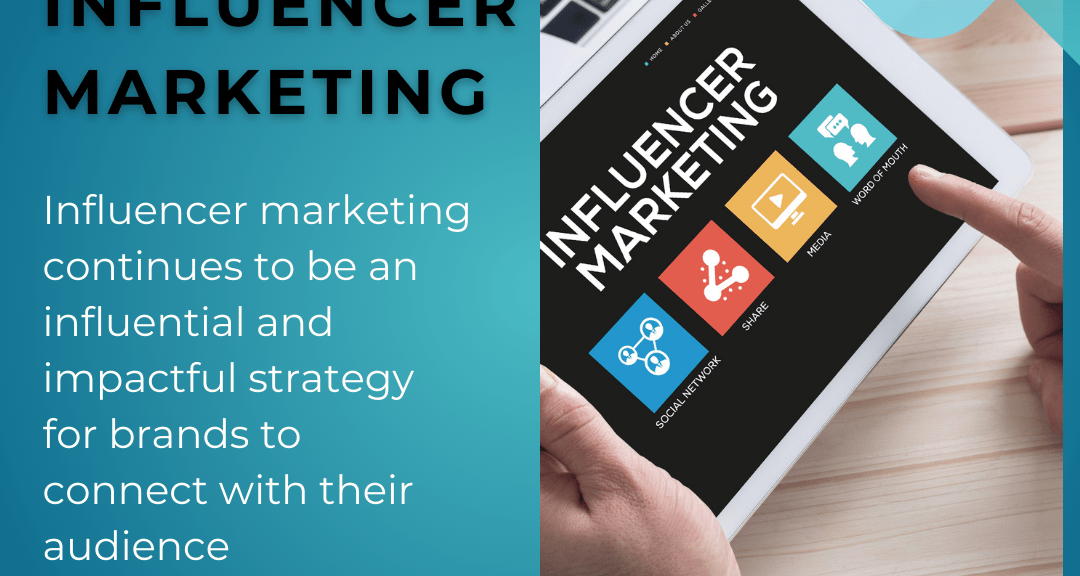In the digital age, marketing strategies have evolved dramatically. One such transformational approach that has gained tremendous momentum is “Influencer Marketing.” This innovative tactic revolves around partnering with influential individuals or content creators to promote products or services to their engaged audience. In the contemporary landscape, influencer marketing has emerged as a potent instrument, allowing brands to establish genuine and relatable connections with their intended audience. In this article, we will delve into the essence of influencer marketing, exploring its benefits, challenges, and best practises to ensure a successful collaboration that resonates with both the influencer’s community and the brand.
Understanding Influencer Marketing
Influencer marketing is based on the principle of leveraging an individual’s influence, credibility, and reach within a particular niche or industry. These influencers have built a dedicated following on various social media platforms, such as Instagram, YouTube, TikTok, and blogs, among others. Their followers trust their recommendations and perceive them as relatable figures, making influencer marketing a valuable avenue for brands to access their target audience.
The Process of Collaboration
Effective influencer marketing collaborations go beyond mere product promotion; they focus on building a genuine connection between the influencer, the brand, and their audience. The process involves the following steps:
- Research:
Brands conduct thorough research to identify influencers whose values, content, and audience align with their brand identity and target market.
- Building Relationships:
Brands initiate contact with potential influencers, fostering relationships through personalised outreach. Authenticity and mutual respect are vital during this phase.
- Setting Objectives:
Both the brand and the influencer discuss and establish clear objectives for the collaboration. These objectives may include increasing brand awareness, driving website traffic, or generating sales.
- Content Creation:
Influencers craft engaging content that seamlessly incorporates the brand’s product or service. This content can take the form of reviews, tutorials, unboxing videos, or sponsored posts, depending on the platform and the influencer’s expertise.
- Promotion and Engagement:
Once the content is live, both the brand and the influencer actively promote it on their respective channels, engaging with their audiences through comments, likes, and shares.
Benefits of Influencer Marketing
- Enhanced Credibility:
As influencers are seen as trustworthy figures, their endorsement of a brand’s product or service elevates the brand’s credibility among their audience.
- Increased Reach:
Influencers’ large and engaged followings allow brands to reach a broader audience and tap into new markets.
- Authenticity:
Influencers bring an authentic voice to the brand’s message, making the marketing campaign more relatable and less intrusive.
- Boost in Conversions:
Due to the personal connection influencers have with their audience, their recommendations often lead to higher conversion rates.
Challenges in Influencer Marketing
While influencer marketing offers numerous benefits, it also comes with its share of challenges.
- Finding the Right Fit:
Choosing the most suitable influencer for a brand requires meticulous research and analysis. Partnering with the wrong influencer can lead to ineffective campaigns and potential backlash.
- Ensuring Transparency:
To maintain trust with their audience, influencers must explicitly disclose any sponsored content. Non-compliance with disclosure guidelines can damage both the influencer’s and the brand’s reputation.
- Measuring ROI:
Determining the exact return on investment for influencer marketing campaigns can be complex, as success metrics vary based on campaign objectives.
Best Practises for Successful Collaborations
To ensure fruitful influencer marketing collaborations, brands should adhere to the following best practises:
- Transparency and Authenticity:
Honesty is the cornerstone of successful influencer marketing. Brands must allow influencers creative freedom while ensuring that they disclose sponsored content clearly.
- Long-term Partnerships:
Building lasting relationships with influencers fosters trust and consistency in the brand’s messaging.
- Micro-Influencers:
Consider collaborating with micro-influencers who have a smaller but highly engaged and dedicated following. They often offer a more niche and targeted audience.
- Creativity and Flexibility:
Encourage influencers to experiment with creative content that aligns with their unique style while promoting the brand’s values.
Conclusion
Influencer marketing continues to be an influential and impactful strategy for brands to connect with their audience authentically. By collaborating with influential individuals or content creators, businesses can tap into the power of social media and establish meaningful relationships with potential customers. Embracing transparency, fostering authenticity, and setting clear objectives are key elements that can lead to successful influencer marketing campaigns, benefiting both the brand and the influencer alike. As the digital landscape evolves, influencer marketing will remain a driving force in shaping the future of brand-consumer relationships.


